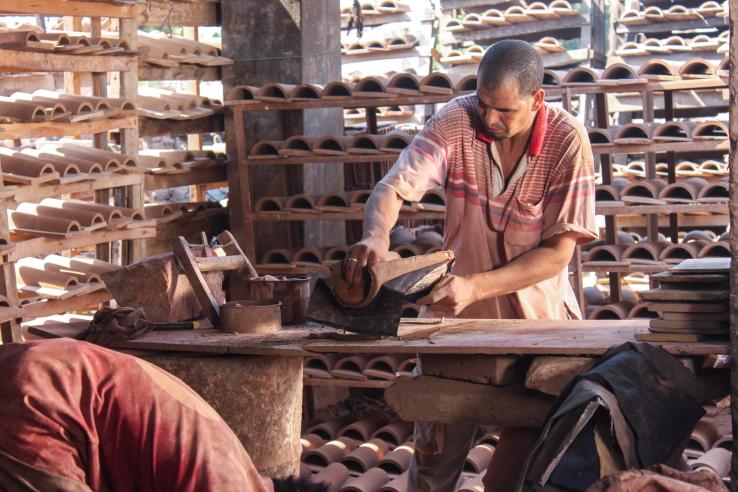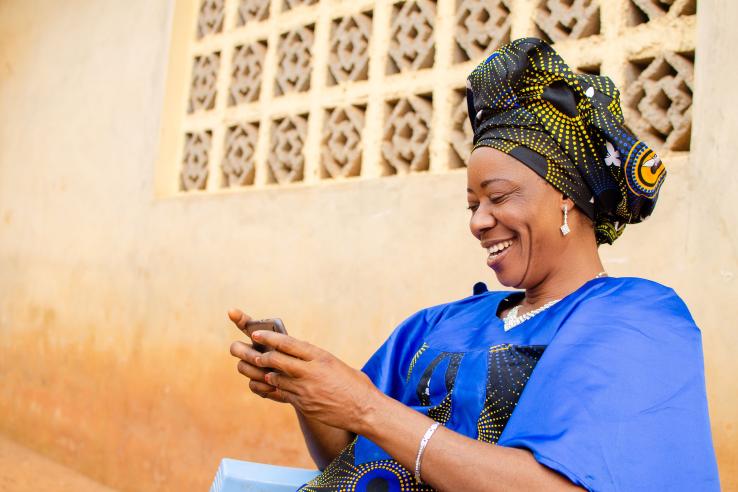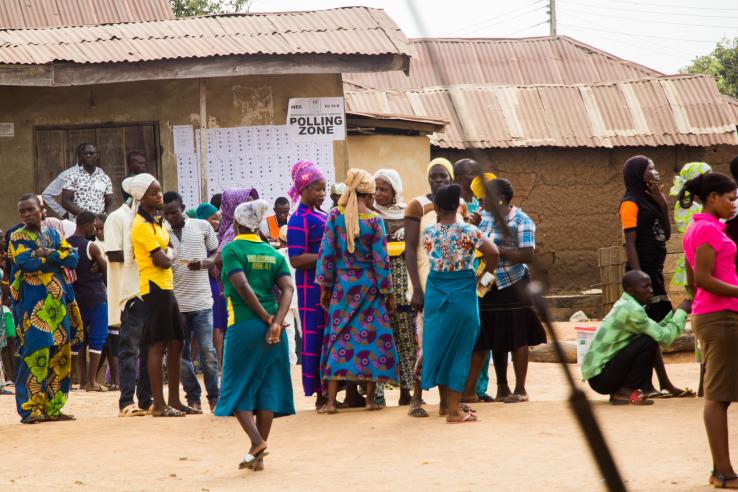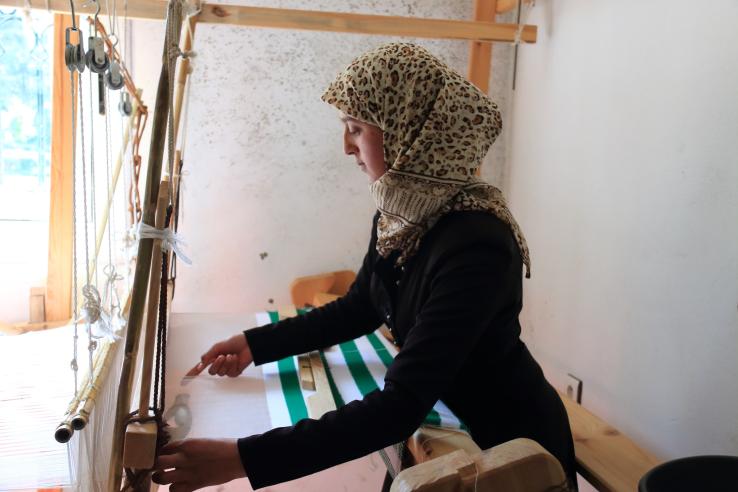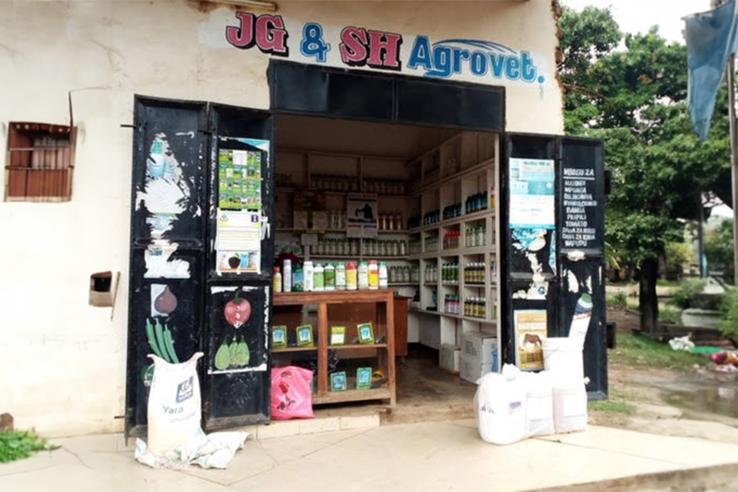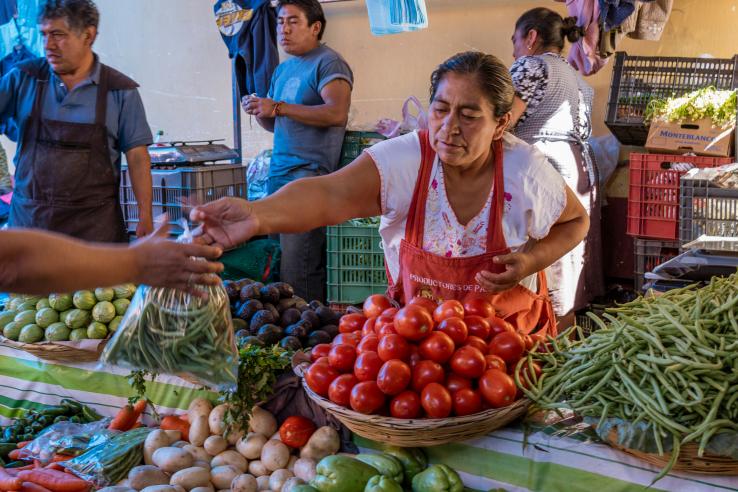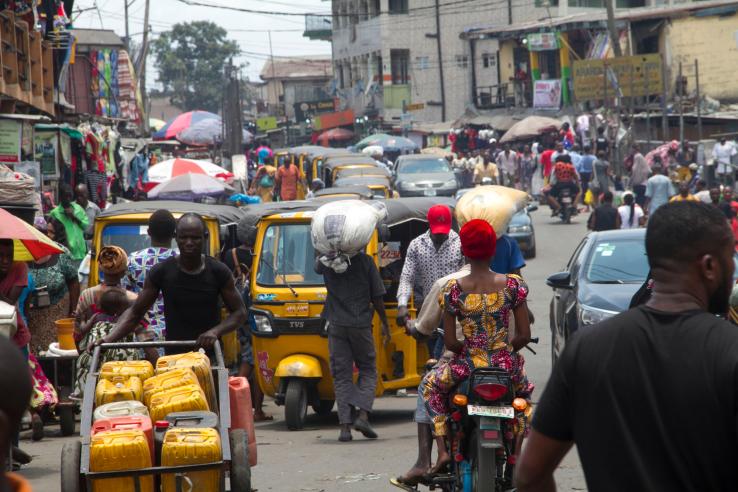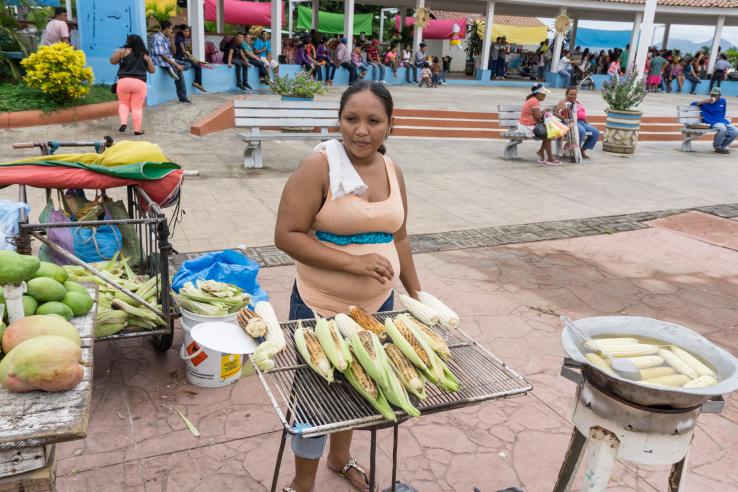Displaying 826 - 840 of 1291
Evaluation
Evaluation
To test the impact of an automated phone call from a credible source on voters’ preferences and behavior, researchers delivered the message to random voters in two concurrent randomized evaluations. The call did not increase voter turnout or change voter preferences, suggesting that automated phone calls may not be a cost-effective strategy for communicating with and mobilizing constituents.
Evaluation
This evaluation tests the impacts of providing larger loans to microcredit borrowers on both firms and microfinance institutions.
Evaluation
Researchers ran an evaluation in Niger to determine if training adults to use mobile phones could improve their learning outcomes when added to a standard adult education program. The mobile phone program increased student writing and math test scores relative to the standard curriculum.
Evaluation
In collaboration with the French employment agency Pôle Emploi, researchers evaluated whether interview and hiring rates of minority candidates changed when employers collect anonymous resumes. Making resumes anonymous did not affect the average number of interviews and job offers volunteer firms made, the length of the hiring process, or the use of other recruitment channels, but it reduced the likelihood that firms interview and hire minority candidates.
Evaluation
In Indonesia and Tanzania, researchers conducted a mixed methods randomized evaluation of a transparency and accountability program designed to improve maternal and newborn health (MNH) outcomes, known as the Transparency for Development (T4D) program. While the T4D program drew strong participation, it had no impact on the use or content of MNH services, perceptions of civic efficacy, or participation among recent mothers in communities offered the program.
Evaluation
Researchers conducted a randomized evaluation in Nigeria to determine whether a campaign against electoral violence could spread through social networks to affect the perceptions and behaviors not only of the individuals targeted by the campaign but also others to whom they have social ties. The clearest effects of the campaign were on decreasing the perceptions of violence among those with social ties to the targeted individuals, most often through family links.
Evaluation
Researchers are evaluating the impact of improved microcredit loan design on its take-up, as well as the welfare and business conditions of borrowers.
Evaluation
Energy-efficient technologies, such as compact fluorescent lightbulbs (CFLs), have the potential to save consumers money, but their adoption remains low. Researchers evaluated the impact of information and price on demand for CFLs in two contexts: an online survey platform and a typical retail setting. Information and subsidies increased consumers’ willingness to purchase CFLs. Researchers estimate that CFL subsidies and information may be more beneficial than bans on incandescent lightbulbs.
Evaluation
Researchers conducted an evaluation to test the impact of an information campaign about fertilizer quality on farmers’ beliefs and their purchase and use of fertilizer. The information campaign led farmers to change their beliefs about the quality of fertilizer available in local markets and to buy more fertilizer.
Evaluation
Researchers used survey data to evaluate short-term outcomes for Boston’s SYEP participants in 2015. They found that the program significantly improved participants’ community engagement and social skills, many job readiness skills, and some academic aspirations.
Evaluation
Researchers conducted a randomized evaluation to test the impact of the anti-poverty cash transfer program, PROSPERA, on food consumption for families living in poverty in Mexico. Households consumed enough food both before and after receiving the cash transfer.
Evaluation
To better understand how to measure and report depression, researchers randomized the order of questions in a national survey to examine the effect of triggering memories of difficult events, such as conflicts, shocks, and death, on reported levels of depression across households in Nigeria. They found that having his/her painful memories triggered, respondents who experienced an adverse event were more likely to report symptoms of depression.
Evaluation
This evaluation measured the determinants of insurance enrollment as well as the impacts of having insurance for informal sector workers by randomly varying the costs and convenience of signing up for a government health insurance program available to formal and informal sector workers in Nicaragua. Overall, take-up of the insurance and retention rates were low, and enrolling in the program did not provide an absolute cost savings for participants.

